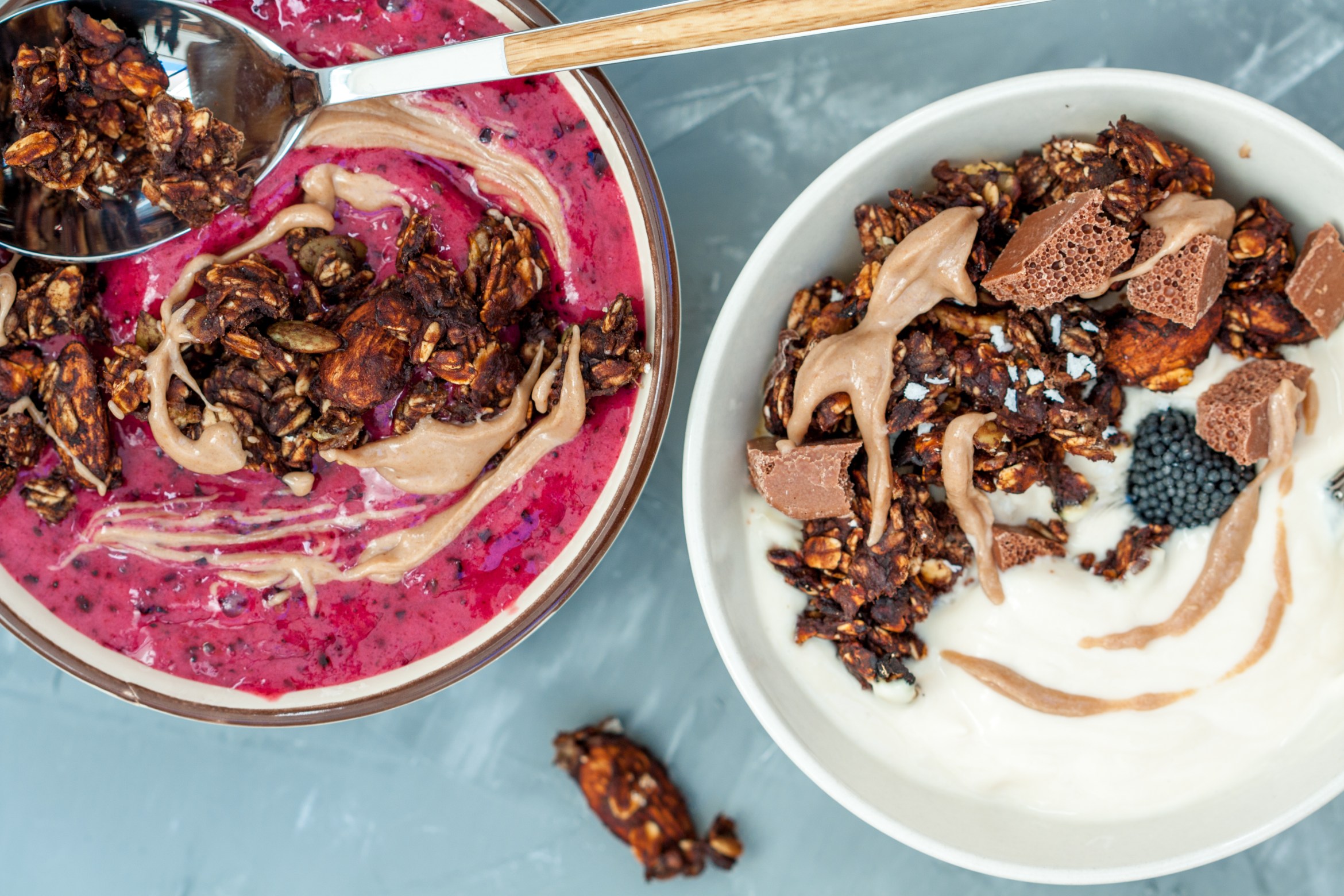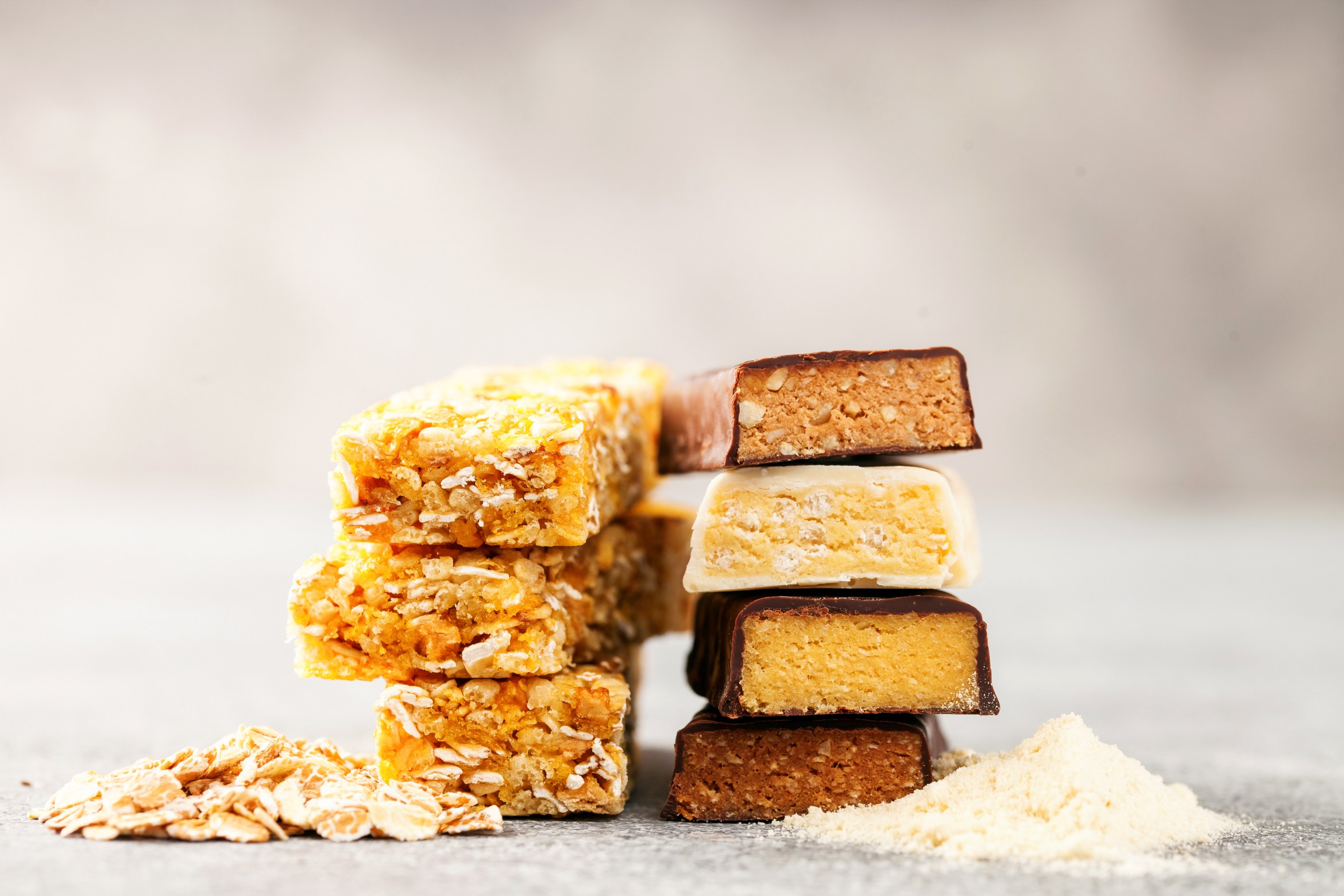A walk down the peanut butter aisle will reveal a new trend in the last five years or so: Peanut butter’s got some new company on the shelf. The prevalence of other nut and seed butters is largely influenced by the plant-based community and those looking to add more variety to their diet. It’s a good thing, since nut butters are brimming with healthy fat, vitamins, and minerals.
But can you swap peanut butter with just anything? Today we’re examining the flavor profiles, vitamins, and popular uses for nut butters now lining the grocery store shelves.
Almond Butter
When it comes to nutrition, almond butter gets an A+. Two tablespoons of almond butter can provide important minerals like calcium, iron, magnesium and potassium. It’s also rich in vitamin E for supple skin and contains copper and phosphorus which help improve bone strength.
When it comes to taste and texture, almond butter swaps pretty well with peanut butter. You can whip up almond butter and jelly sandwiches or use it in baked treats like almond butter bars or almond butter cookies. Almond butter is also a nutrient-dense swap that can be used in Thai and Vietnamese dishes (sauces, dressings, and stir fry bases).
Sunflower Seed Butter
Sunflower seed butter’s real super power is it’s a great substitute for those with tree nut or peanut allergies. Sunflower seed butter is an excellent source of pantothenic acid, magnesium, phosphorus, copper and manganese. It is also a good source of protein, folate and zinc.
What’s more, sunflower seed butter may be particularly beneficial for women. With their high amount of vitamin B6 and magnesium, sunflower seeds contain ingredients that have been linked to reduction of cardiovascular disease, menstruation difficulties and premenstrual syndrome.
Texture-wise, sunflower seed butter tends to be a bit thicker than peanut butter, so it’s usually blended with a bit of sunflower oil to create a smooth, spreadable texture. Jarred sunflower seed butter usually contains a little honey and sea salt to amplify the flavor.
Use sunflower seed butter anywhere you’d use peanut butter. This nutrient-dense butter is the perfect swap for those with peanut allergies or those looking to diversify the nutrients in their diet.
Cashew Butter
Cashew butter is incredibly versatile and has a smoother taste than other nut butters. Its neutral flavor means you can add it to baked goods (like cookies or energy balls) without getting the overpowering “peanut buttery” taste.
Cashew butter also lends itself well to the savory side (as long as it isn’t sweetened—check the ingredients). You can make a plant-based cheese substitute with cashew butter or use it as a high-protein thickener in soups like this Green Pea Blender Soup.
As far as nutrition, cashews are rich in many B vitamins like B12, B1 and B5, which help correct metabolic disorders. One caveat: Pay attention to how much you consume since it is the highest in calories.
 Choosing a Good Quality Nut Butter
Choosing a Good Quality Nut Butter
While the nutritional profile of each nut butter varies depending on its main ingredient, all forms can be beneficial to your health (as long as you’re not allergic). When you’re at the grocery store scoping out the healthiest option, look for ones that have the shortest list of ingredients which means our body can process them better.




.4).2511050842400.png)
.jpg.2511241144379.webp)